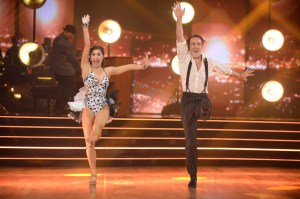As civil rights protests continue after more than a month across cities in the U.S., and around the globe, a number of aspects of day-to-day life have been re-examined under a new lens. This includes everyday words and phrases, some of which can be traced back directly to their origins in the slave trade. The origin of others can’t be traced back directly, yet they still bear racist connotations.
Many of these terms are tossed around casually, with their users unaware of where they may have begun. “Words like ‘slave’ and’ master’ are so folded into our vocabulary and almost unconsciously speak to the history of racial slavery and racism in the US,” Elizabeth Pryor, an associate professor of history at Smith College, told CNN. “Language works best when it brings as many people into communication with each other. If we know, by using certain language, we’re disinviting certain people from that conversation, language isn’t doing its job.”
Videos by PopCulture.com
In short, the intention of the word (or lack thereof), can still be alienating. Here’s a look at a few words, which have permeated sports, technology, as well as everyday vernacular, that have problematic origins or implications.
The Masters Tournament

The Masters Tournament, often known as “The Masters,” is one of the four major tournaments on the PGA Tour, which dates back to the inaugural event back in 1934 in Augusta, Georgia. Along with the obvious implication, the Augusta National Golf Club has a history of problematic behavior.
The club previously required that all caddies be Black, and even banned Black golfers until Lee Elders broke through in 1975. Still, it would be another 15 years before the club accepted Black members, and women were only allowed to join back in 2012.
Master Bedroom (and Bathroom)
While the phrase first appeared in 1936, Master Bedrooms became much more prominent through the suburban boom in the years after WWII. Referring to the largest room in the house, typically with a private bathroom, it’s actual roots to racism are still unclear. However, The Houston Association of Realtors recently decided to nix the term in favor of Primary Bedroom.
Master/Slave

The tech term master/slave is used to describe components of software and hardware in which one process (or device) controls another. Though it’s been around for decades, it’s been the subject of contention for years in an industry that’s become increasingly criticized for lack of real inclusion.
The programming language Drupal has replaced the term in favor of primary/replica, while Django has shifted to leader/follower. Both Twitter and JPMorgan also announced in recent days that they’ll be retiring the master/slave term as well.
Blacklist/Whitelist
Similarly, the tech term blacklist refers to a directory of items that are blocked, including email addresses, IP addresses or URLs. The whitelist, of course, is made up of elements that are permitted. Like Master Bedroom, the terms direct connections to race aren’t confirmed, but it’s being deemed problematic for perpetuating the idea that white is permitted and black is not.
Peanut Gallery

Peanut Gallery is a phrase referring to the cheapest seats in a theater farthest away from the stage. The origins date back to the vaudeville era of the 1860s, commonly referring to seats where Black patrons were allowed to sit, reinforcing the notion that it’s where the loud and uninformed sat. By the 1940s, the Howdy Doody radio show referred to its all-kids audience as the Peanut Gallery, which carried over to the TV version the following decade.
Grandfathered In
While it now means an exemption that allows certain entities from following new laws, the term “grandfather clause” in does have roots to racism, as it was used to disenfranchise Black voters. It can be traced back to a broad legal term known as the “grandfather clause,” which was utilized by seven Southern states following the Civil War.
The clause stated that anyone who was able to vote before 1867 was exempt from the literacy tests, property requirements and poll taxes needed for voting. However, since enslaved Black people were not freed until 1865, and weren’t granted the right to vote until 1870, they were excluded from voting. A trend that would carry on until the first civil rights movement in the U.S. back in the 1960s.
Cakewalk

The cakewalk was a dance performed by enslaved Black people on plantations prior to the Civil War and was intended to be a mockery of the way white people danced. Plantation owners would hold contests where slaves would compete for a cake. It later became incorporated in minstrel shows, and now has come to mean an easy competition.
Uppity
Though it now means general snobbishness, the term came about in the Jim Crow era to describe Black people that weren’t deemed respectful by white people. To the point that people were lynched over what was deemed as “uppity” behavior. More recently, the term was also frequently lobbed at President Barack Obama, first lady Michelle Obama and Duchess of Sussex Meghan Markle, often by conservatives who largely claimed they were unaware of the word’s racist origins.
Sold Down the River

What’s become shorthand for being betrayed, ‘sold down the river’ has a direct lineage to slavery. Slave traders would travel along the Mississippi River to sell enslaved people to plantation owners further south, hence the phrase.








